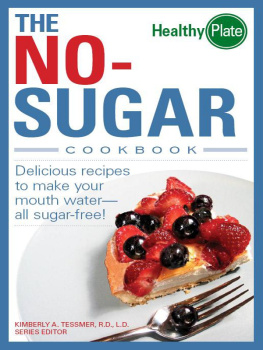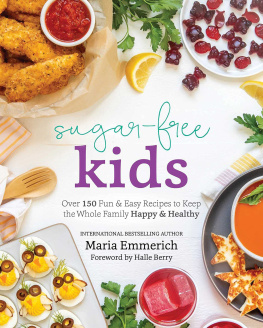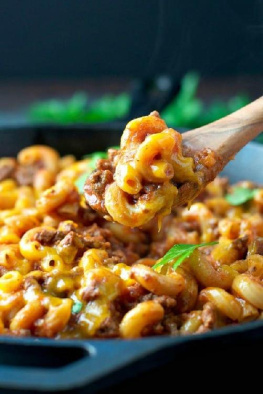Preface
As a child, I loved to eat white bread or cheese pretzels with Nutella. Can you imagine that? Well, to be honest, not me anymore - and everyone who may already know me knows how far this is from my current lifestyle. When I was around 15, the turning point came when I noticed that I had gained quite a bit of weight and was always tired. The more I have dealt with healthy eating since then, the more I fell in love with it and actually became a completely different person. For a while I even wanted to study nutrition. In fact, it turned into business administration, but cooking, in general everything that has to do with healthy eating, is still a very big hobby of mine. Since then, a healthy lifestyle has run like a red thread through my life - and the embodiment of this lifestyle, that's me. Especially since I've been mom.
At home there is an oversupply of vegetables and fresh fruit. Organic or from the weekly market. And most of all, Boskop apples from my grandma's garden. Because I firmly believe that food makes a huge difference to how we feel. My motto is: you are what you eat. Healthy food is our fuel, the gasoline that heats up our body. Healthy food makes us fit and healthy and gives us strength for the job, the family - and of course to grow. Like with Ludwig.
Unfortunately, our son was a relatively poor eater at first. And like every mommy, I was of course very worried about it. I've really tried everything to make him eat at least a little something. In fact, there was something he always liked: chocolate balls. According to the motto: the sweeter the better. So maybe someone else would have just "fed" biscuits and other sweets. But if I make sure that I have a balanced diet myself, I want to do the same with my son. And that's why I started to focus on healthy nutrition for children and included Ludwig from the start. Since then, Ludwig has always been there in the kitchen. He even has his own children's stove. When I cook, he cooks there too. And you know what? There is only fresh food in his kitchen. He now knows his way around really well and even helps me find the right vegetables when I'm shopping. Especially my beloved fennel. My first goal has already been achieved: I wanted Ludwig to deal with food and food because he has a completely different connection to it. My great wish is that Ludwig understands that food can make us happy and healthy. And that he grows up as sugar-free as possible.
I met Christina Wiedemann in the waiting room of our common pediatrician. We joked there about the "eating quirks" of children. A few months later, when I was thinking about writing a book on how children could have fun eating without all the sweet stuff, I gave her a call. Christina is a qualified ecotrophologist and therefore not only knows her way around extremely well, but is also constantly developing new recipes. Incidentally, they are best tasted on site by a tough jury: their eight-year-old daughter.
Our pediatrician Dr. I also got Antonia Gavazzeni on board. As an expert - she is also a child diabetologist - she knows exactly how harmful sugar can be for our kids. But she also knows that food can not only make you sick, but can also heal if you use it correctly and consciously - for example, by avoiding white sugar. I think the three of us are a great team when it comes to what moves mothers, is good for children and tastes good to the whole family. And I hope we can get you excited about sugar-free cuisine as well.
Why children love sweets
While I was breastfeeding, I honestly didn't think too much about the time afterwards and assumed that Ludwig would simply eat the same as me or his dad. Keyword "role model" and so on. What I did not take into account is that children have a very special preference for sweets and that they do not like many things that we think are great.
Sweet means "not poisonous"
We actually have an innate love of sweets. You don't have to learn to like sweet things - in contrast to sour, very salty and bitter foods. You only get used to these flavors over the years - by trying them out again and again (for which we have to offer them to the children again and again). Scientists suspect that the genetic preference is based on the fact that there is nothing in nature that tastes sweet and is toxic. For millennia, people had to decide with their tongue whether to swallow something or spit it out again. Sweet was a "security taste". That shapes.
In addition, unborn babies are programmed to be sweet. In the last trimester of pregnancy, they constantly swallow amniotic fluid and it tastes sweet - just like breast milk or formula milk (infant formula) that they drink in the first few months of life.
Sweet makes you strong
In the first years of life, children do one thing above all else: grow and learn. To do this, they need an enormous amount of energy. And it is especially in sugar. That's why they intuitively want more of it. This is also biologically based. In the past there were neither supermarkets nor delivery services when you were hungry. Instead, strategic planning was required. If there was honey or fresh fruit, it was time to strike. In principle, bears and marmots still do it that way and in autumn eat a real extra layer of fat for hibernation with lots of ripe fruits.

For me the best sweets in the world: fresh berries. They have the right snack size, are beautifully sweet and super healthy.
Do children need "own" food?
Ever since Ludwig was born, I have noticed labels like with extra milk, with valuable vitamins or for healthy bones everywhere. The advertising departments of the large food companies play with the parents' wish to give their children only the best. On closer inspection, however, the supposed health benefits are not that great. The plus of vitamins, minerals or other ingredients considered healthy is negligible in most cases with regard to the actual daily requirement of a child. In addition, added vital substances are not as healthy as those in fresh, natural foods. And many, such as vitamin C, are eliminated by the body immediately when the daily dose is covered.
Colorful breakfast cereals are often not muesli, but real sugar bombs and therefore basically just as sweets as gummy bears. Fruit yoghurt does not contain more calcium than natural yoghurt - but it does contain many other ingredients that no one needs. The main task of the miracle ingredients is rather to successfully hide the fact that the products also contain a lot of salt and fat, flavors and colorings - and of course sugar. It is clear, after all that is above, one could now think: Children simply need a lot of it.
The problem, however, is that sugar consumption no longer regulates itself somehow. There used to be sweets only in summer and autumn, now all the time. The organization foodwatch has calculated that our children and adolescents will have reached the sugar target for the whole year after just 224 days - that's how much sugar they eat. In theory, they shouldn't eat sugar for a third of the year to make up for this. However, it is quite unlikely that someone will do this ...
Conditioned on sugar
Children need energy. But you definitely don't need industrial sugar! Although it makes you full, it does not contain any vitamins or minerals, so it only provides empty calories. In addition, the feeling of satiety does not last long - you will have your appetite again a short time later. First of all, this means that you quickly consume too many calories. And secondly, the body sometimes needs breaks to eat so that the metabolism works optimally and the body has the opportunity to purify itself. That's why I've been doing intermittent fasting for some time and it makes me feel much better. All the foods specially recommended for children are therefore by no means as valuable as the manufacturers claim. And not only do I see it that way, but also nutritionists and doctors. Above all, children get used to the intense taste very quickly and are literally conditioned to sugar. The result is that they will soon no longer be able to gain much from real foods. But they would be really valuable. By the way, the highlight of the absurd for me are candies "with healthy vitamins". How about some fresh berries instead?









